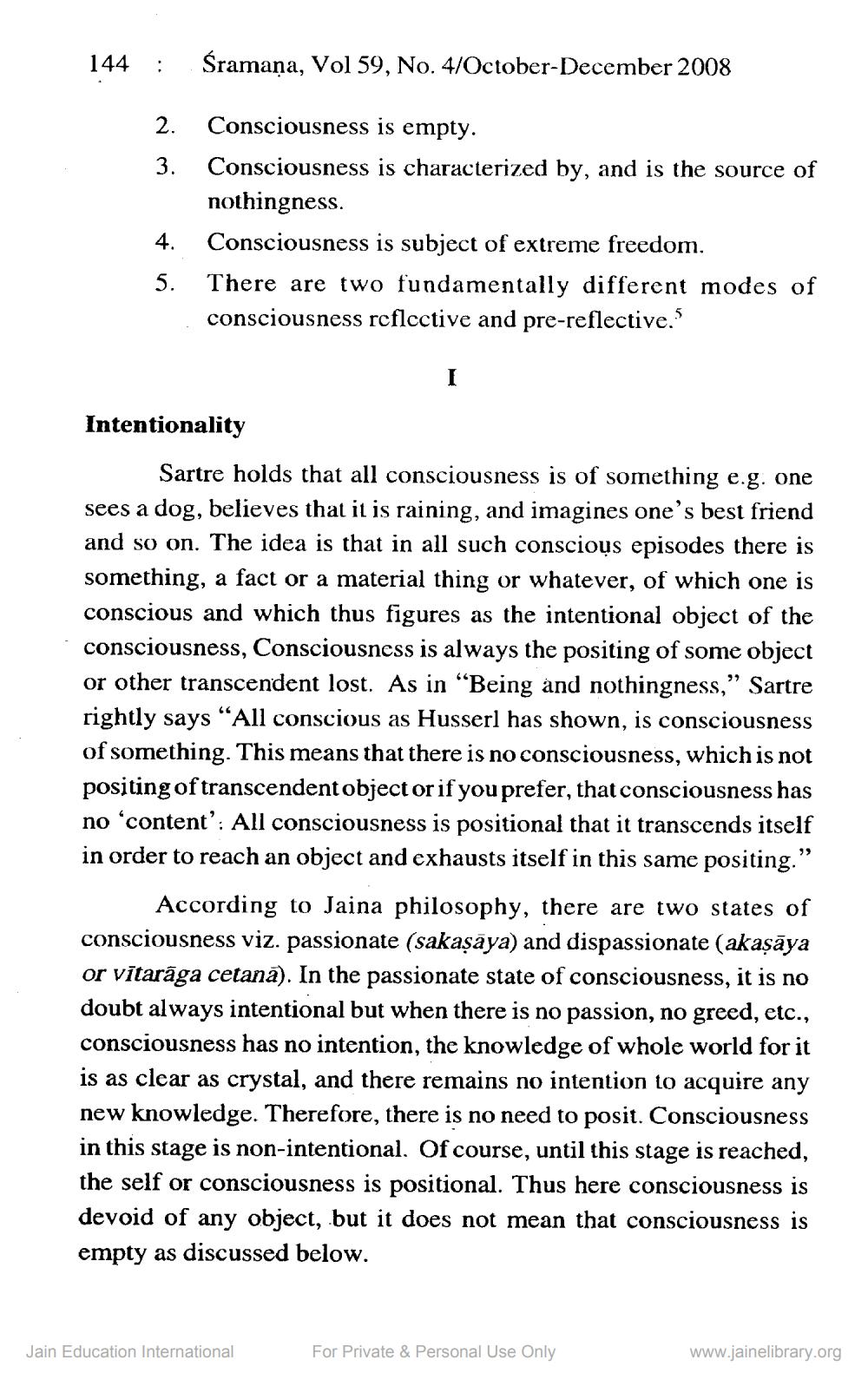________________
144 :
śramaņa, Vol 59, No. 4/October-December 2008
2. Consciousness is empty.
Consciousness is characterized by, and is the source of
nothingness. 4. Consciousness is subject of extreme freedom. 5. There are two fundamentally different modes of
consciousness rcflcctive and pre-reflective."
Intentionality
Sartre holds that all consciousness is of something e.g. one sees a dog, believes that it is raining, and imagines one's best friend and so on. The idea is that in all such conscious episodes there is something, a fact or a material thing or whatever, of which one is conscious and which thus figures as the intentional object of the consciousness, Consciousness is always the positing of some object or other transcendent lost. As in “Being and nothingness," Sartre rightly says “All conscious as Husserl has shown, is consciousness of something. This means that there is no consciousness, which is not positing of transcendent object or if you prefer, that consciousness has no 'content': All consciousness is positional that it transcends itself in order to reach an object and exhausts itself in this same positing.”
According to Jaina philosophy, there are two states of consciousness viz. passionate (sakaṣāya) and dispassionate (akaṣāya or vītarāga cetanā). In the passionate state of consciousness, it is no doubt always intentional but when there is no passion, no greed, etc., consciousness has no intention, the knowledge of whole world for it is as clear as crystal, and there remains no intention to acquire any new knowledge. Therefore, there is no need to posit. Consciousness in this stage is non-intentional. Of course, until this stage is reached, the self or consciousness is positional. Thus here consciousness is devoid of any object, but it does not mean that consciousness is empty as discussed below.
Jain Education International
For Private & Personal Use Only
www.jainelibrary.org




